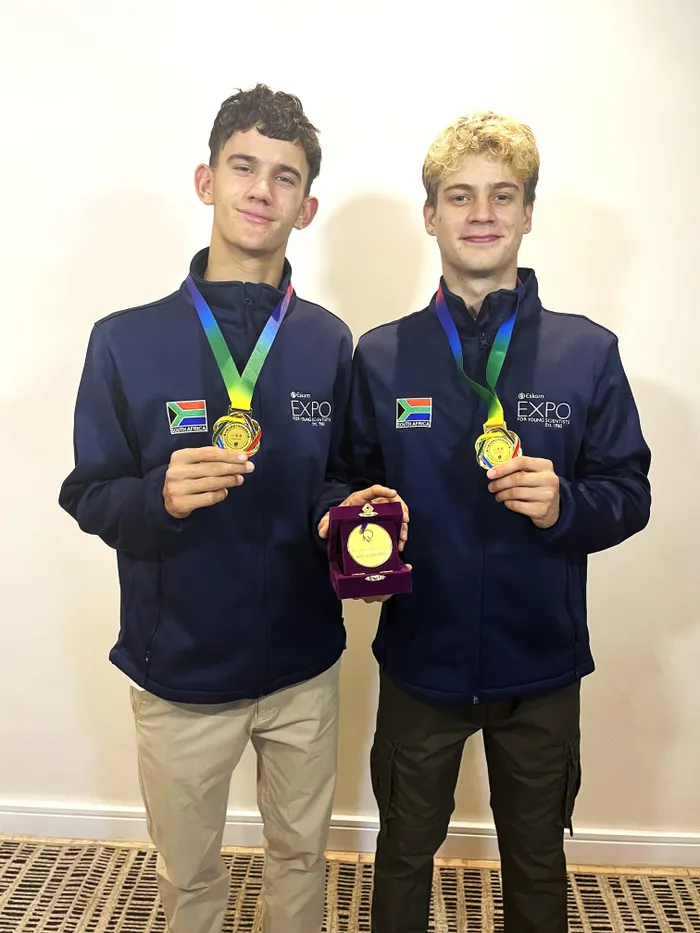Pinelands High pupils win international science award

Pinelands High pupils, Adam Gibbon, left, and Christopher Collier-Reed won the top prize for their group research project at the Beijing Youth Science Creation Competition (BYSCC) held in China.
Image: Image supplied
Pinelands High scientists Christopher Collier-Reed and Adam Gibbon won the top prize for their group research project at the Beijing Youth Science Creation Competition (BYSCC), held in China at the end of last month.
The Pinelands High duo, who represented Team South Africa (SA) won first prize for their research project called, “Flies to the rescue: Innovating food waste management using Black Soldier fly larvae”.
Grade 12 pupil Christopher, 17, says winning the global prize was unexpected. “Our goal was simply to reach the international level, and we weren't expecting to win anything,” he says.
Christopher says their project was focused on food wastage in the country. “In South Africa, around 40% of our landfill space is filled by unnecessary food waste. This waste decomposes slowly and releases harmful greenhouse gases into the environment.”
Christopher says in their research they discovered the use of black soldier fly larvae. “These larvae are both highly effective at breaking down organic waste in a short period, and in the process, they also transform the waste into two economically viable by-products: the nutrient-rich compost, which can be used to revitalise soil, and high-protein larvae, which can be used as an economically and environmentally sustainable animal feed.”
Grade 12 pupil Adam says it “feels” surreal to know that all the hard work they put into their research and experiments paid off. “My advice for aspiring scientists is that things don’t ever go as planned. There were times when experiments didn’t work or I felt unmotivated, but staying disciplined and persistent will help you reach new heights.”
Adam says the black flies are quite different from house flies. “Black soldier flies do not bite or spread disease, they do not even have working mouthparts or stingers. It is their larvae that have incredible appetites and thrive on eating decaying food waste,” he says.
In their research, Adam says they found that regular composting took months to decompose food waste, while in their experiment they saw that the black fly larvae can decompose food in seven days. “So instead of seeing black soldier flies as pests, we see them as an incredible solution to the global trillion dollar food waste problem.”
Acting CEO of the Eskom Development Foundation, Mologadi Motshele, congratulated Team SA for making an incredible impact at the BYSCC. “Eskom encourages young people to think innovatively and to explore new ways to solve real-world problems,” she says.
Registration to take part in Eskom Expo 2025 is still open. School pupils in Grades 4 to 12 and Technical and Vocational Education and Training (TVET) students NC(V) Level 2 to NC(V) Level 4 can register their research projects by visiting www.exposcience.co.za